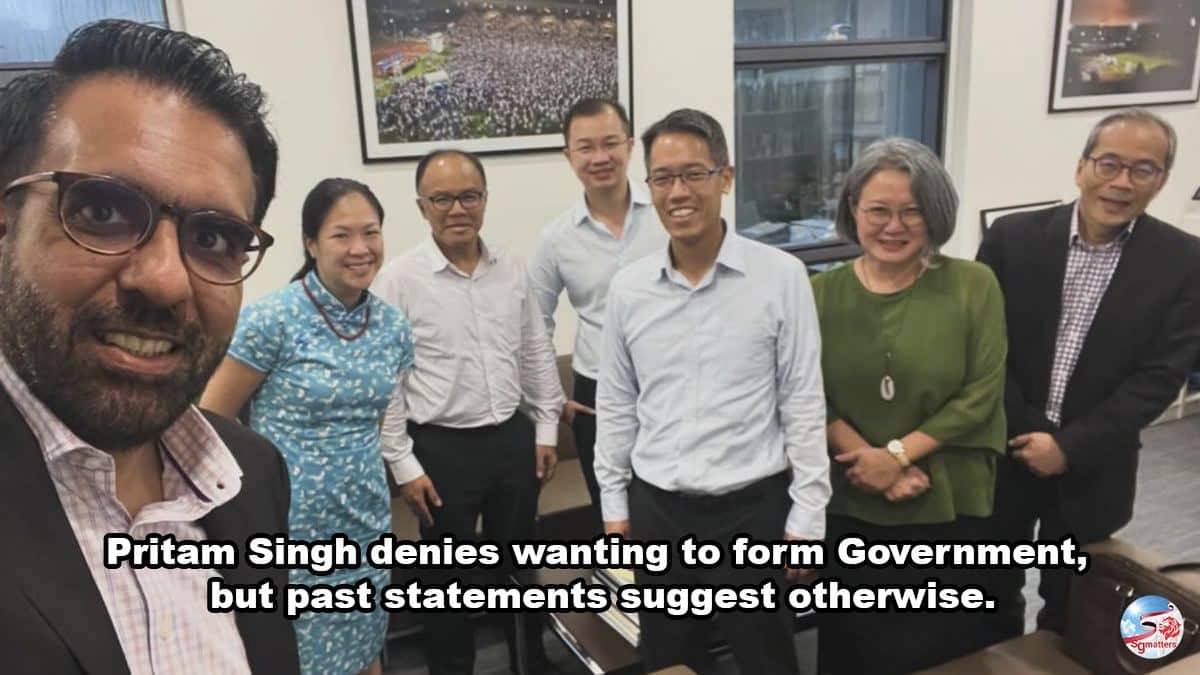Singapore’s preparation has already started quite awhile ago, and it will continue to be improved until we face the next crisis.
Singapore was among the first to have approved vaccines delivered to us. Working like clockwork, our leaders and front-liners, including doctors, nurses and grassroots volunteers were able to help Singapore achieve one of the highest rates of vaccination in the world. Through advance purchase, the Singapore Government also ensured that Singapore is stocked up with new drugs being developed to treat the covid infection.
Our healthcare system was stressed and tested but not overwhelmed to the extent that there were no beds available and doctors had to make the wrenching decision of who to get the oxygen and who to let go, as was the case in some countries. Thus we were able to minimise lives lost and achieve one of the lowest mortality rates in the world.
Our leaders walked on a tightrope without a playbook. How did we achieve the outcomes?
As we begin to see light at the end of the pandemic tunnel, it bodes well to look back and draw lessons from the journey so as to prepare for the next major national crisis, including Disease X Crisis. Truth be told,
1. Comprehensive System Backed By integrity, Unity & Trust
2. Effective Leadership & Teamwork
Our leaders were transparent and acted with integrity. They were ready to roll back planned measures at the risk of being seen as flip-flopping, when it was necessary to do so. Throughout the whole time, the opposition offered no suggestions and little comments on the covid crisis. The only suggestion was from Assoc Prof Jamus Lim, who taking the cue from the west, suggested that mask-wearing outdoors be done away with. This suggestion came at a time when Singapore was still dealing with surges and new variants. It was an untimely suggestion.
3. Forward Planning And Execution On A Long Term Basis
In the midst of the pandemic, our leaders have already started to strengthen capacity and capability of our healthcare, medical technology, and bio-pharmaceutical infrastructure and systems. We now have the ability not only to produce enouch masks for our own use, we also have the ability to produce melt-blown polypropylene filters – the critical fabric that forms the middle layer in surgical masks. This is a big boost to our resilience, both now and in the future when the next health crisis hits.
In the midst of the pandemic, the government was also in talks with several pharmaceutical companies to manufacture vaccines and therapeutics in Singapore. Global pharmaceutical companies including Amgen, Pfizer, GSK and Sanofi have a strong presence in Singapore.
Biopharma companies in Singapore manufacture products from antibiotics, flu vaccines, asthma inhalers, to life-saving medicine for hypertension and diabetes, and even necessities like formula milk. Then Trade and Industry Minister Chan Chun Sing said in 2021 that these investments in Singapore’s capabilities will equip us for end-to-end production of many biomedical products, including vaccines. Aside from strengthening Singapore’s position as part of the global value chain, it also supports our long-term resilience, he said.
4. Are We Slowing Down A Well-Oiled And Proven System Of Leadership And Management?
There’s no evidence-based research that suggests that a multiple-party government or a single-dominant party government is more or less effective and efficient in governing a country.
The key to sound governance is conditioned upon having effective leadership and teamwork, developing an effective system and infrastructure, and abiding by time-proven values, including values of integrity, unity and trust. These are some of the factors that have contributed to Singapore’s growth story since 1965.
By any major benchmarking studies, Singapore has done comparatively well.
However, with the low quality and standards of opposition politicians, everything that Singapore has built upon can come crashing down should they come into power and form the government. And like Humpty Dumpty, there would hardly be any way to put Singapore back together again. Try putting together a shadow cabinet of opposition leaders. Ask yourself how sure you are that they can do a better job in leading Singapore through a volatile, uncertain, complex and ambiguous (VUCA) environment?
Good talents have a tendency to stay away from the political arena. Toxic ones; including those who don’t know they are toxic because they believe they have a good heart, have thrown their glove into the political arena to fight for power and position.
As a small country with a limited population size, no major natural resources, and no backing of a sizeable hinterland, Singapore can go down very quickly if inept people of questionable character and integrity are put in the driver seat. It was not too long ago when many countries were richer and more successful than Singapore. Singapore can learn from them how to avoid going down the same path.
– By Grace Yeo





